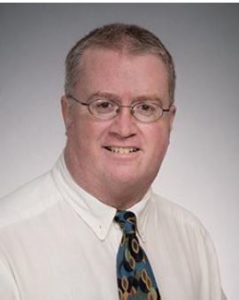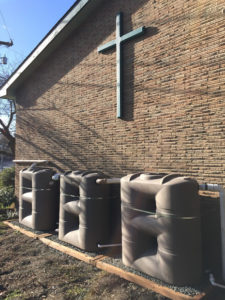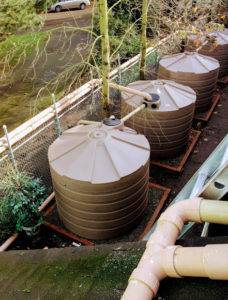
David A. Harrison (1957-2018)
A great friend of Samaritan Center of Puget Sound, David A. Harrison, M.D., Ph.D., passed away on August 3, 2018. We knew him as a deeply caring, wise, and incredibly knowledgeable healer, a psychiatrist of diverse gifts who consulted with Samaritan Center clinicians regularly in the years leading up to his death. He was an Associate Professor at the University of Washington Department of Psychiatry and Behavioral Sciences, consulting psychiatrist for the Mental Health Integration Program, and an attending physician at the Consult-Liaison and Inpatient Psychiatry Services, UWMC.
Dave was born June 26, 1957, in Castro Valley, CA, the son of Florence (Montana) Harrison and Melvin Harrison (deceased). He attended Livermore High School and graduated from Stanford University with honors. His MD and PhD in nutrition were from the University of California, Davis, and his internship and residency in psychiatry were at Oregon Health and Sciences University. As a UW fellow, he engaged in chaplaincy training and developed mental health training materials for chaplains while a Templeton Foundation-funded Visiting Scholar at the HealthCare Chaplaincy in New York. He was board certified in Neurology and Psychiatry, and in his decade at UW, received numerous awards and contributed extensively through journal articles and presentations.
Dave was passionate about team-based, collaborative, and integrative approaches to mental health care, and committed to providing mental health services for those who were underserved. His extraordinary gifts of intelligence, curiosity, compassion and humility have made a significant difference in the lives of those he touched in his work and personal life. Dave will be deeply missed by his family, colleagues and friends.
A Funeral Mass was celebrated at Blessed Sacrament Church on Saturday, August 18. A reception followed Samaritan Center of Puget Sound (564 NE Ravenna Blvd, Seattle).

 On April 10, 2018, Samaritan Center of Puget Sound hosted a festive gathering to celebrate the installation of seven new cisterns at the main office on Ravenna Blvd. This project was a cooperative effort involving Samaritan Center, RainDog Design (contractor), and RainWise (initiator and funder). RainWise is a joint program of Seattle Public Utilities and King County’s Wastewater Treatment Division.
On April 10, 2018, Samaritan Center of Puget Sound hosted a festive gathering to celebrate the installation of seven new cisterns at the main office on Ravenna Blvd. This project was a cooperative effort involving Samaritan Center, RainDog Design (contractor), and RainWise (initiator and funder). RainWise is a joint program of Seattle Public Utilities and King County’s Wastewater Treatment Division.